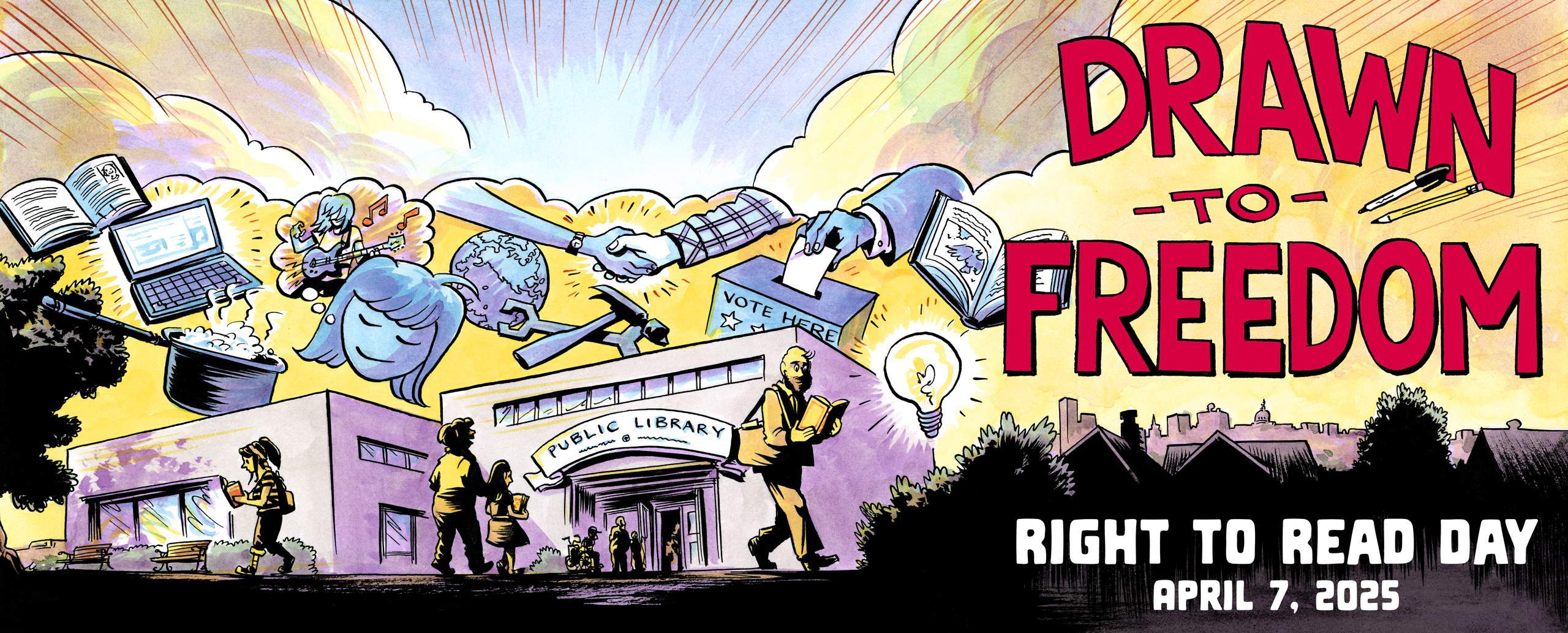
For National Library Week, we’re “Drawn to the Library.” What can you find at the library? In a word: FREEDOM. For Right to Read Day, which takes place Monday, April 7, 2025, we’re “Drawn to Freedom” — the freedom to read, the freedom to access information, the freedom to find community — all of the opportunities our libraries provide.
The freedom to read has been under attack for years now. But the censorship attacks on libraries aren’t just book bans. The individuals and groups behind the attacks on libraries are threatening programs, cutting funding, and trying to pass laws that target library workers and educators.
The relentless attacks on library workers, educators, and community members are meant to create an environment of fear in which people are afraid to buy books, afraid to check out books, afraid to teach a diversity of viewpoints, and afraid to even report censorship.
We started Unite Against Book Bans to push back against these attempts to silence and frighten communities and show that the majority of people do not support censorship and the attacks on libraries. We need to show up for our libraries and library workers and let them know that they are not alone. We need to show up for freedom.
For #RightToReadDay, we’re asking you to celebrate — and defend — the freedoms that are found in our libraries!
Unite Against Book Bans gratefully recognizes Authors Against Book Bans (AABB), Macmillan Publishers, the National Education Association (NEA), The New York Public Library, Penguin Random House, and the Society of Children's Book Writers and Illustrators (SCWBI) for their collaboration and support of Right to Read Day 2025: Drawn to Freedom. Many thanks to artist Nate Powell for creating this year's theme artwork.
SEND A POSTCARD TO YOUR LOCAL LIBRARY
To fight the fear created by organized pressure groups, we must tell our invaluable library workers that their community supports the freedom to read and has their backs. Library workers everywhere need to hear loud and clear: We support you and the freedom to read!
If you believe in freedom, if you believe in libraries, if you believe that people should decide for themselves what they and their children read, thank your local library workers for fighting and join the Unite Against Book Bans supporter network to learn about censorship issues around the country and where you live.
You can send an electronic thank you card to your library workers through Unite Against Book Bans using this form. We’ll deliver the messages to librarians around the country.
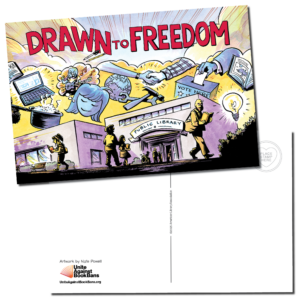
If you want to send a physical postcard to your local library, you can download a PDF postcard kit here.
SHOW UP IN PERSON
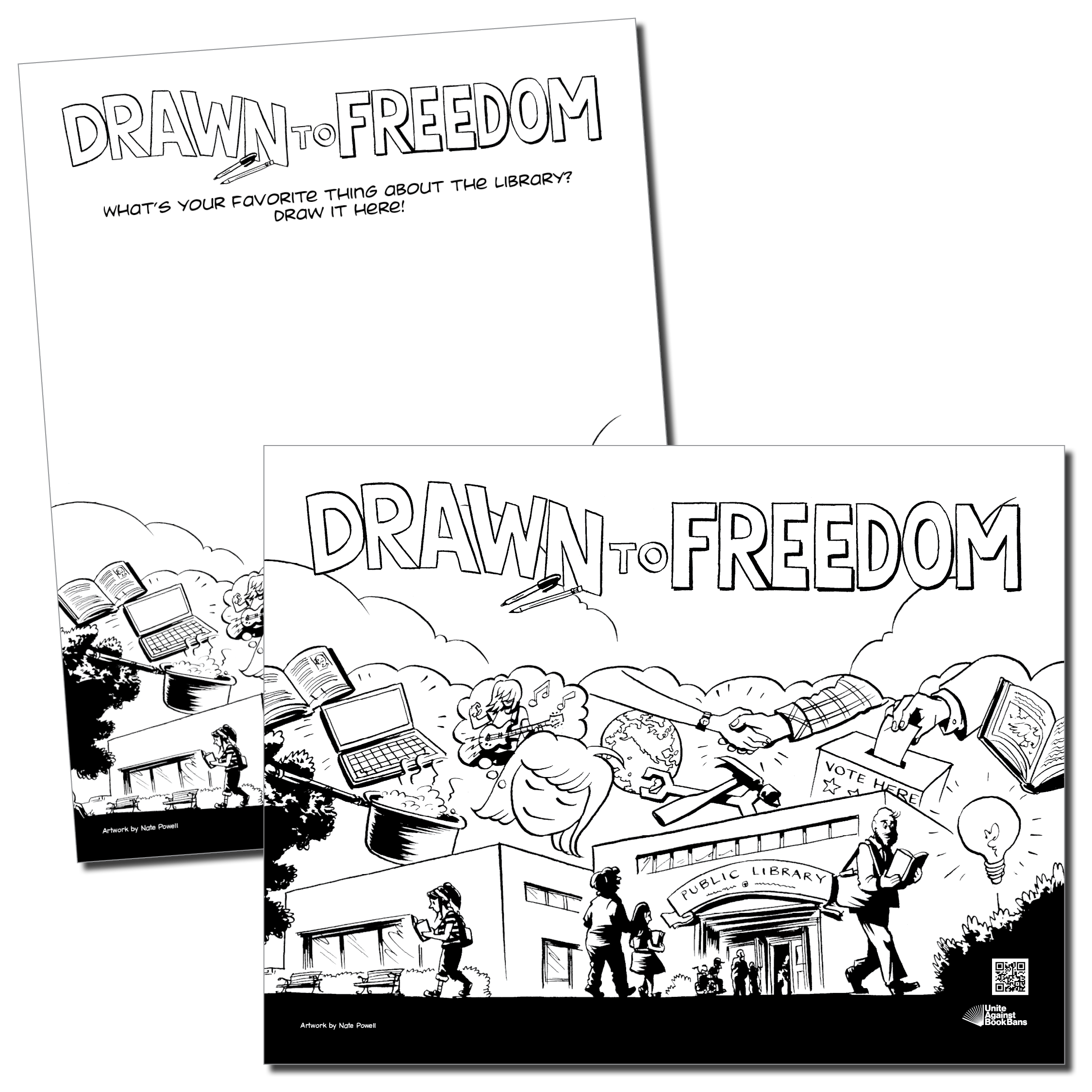
Would you like to do an in-person event for Right to Read Day? We have a few low-lift ideas:
• Draw-in: Encourage the artists in your community to make art that celebrates the freedom in libraries — all you need is pencil and paper!
• Color-in: We have made Nate Powell’s amazing Drawn to Freedom artwork into coloring and activity pages! Throw some copies on a table, along with some markers, colored pencils, and crayons, and you’re set!
• Postcard writing party: Use the Drawn to Freedom Postcard Kit for a writing party. Participants can write to their library staff, decision makers, and others to express their support. (Postcard bundle shipment requests are no longer available; delivery by April 7 not guaranteed, but the postcards can be used any time).
• Artist workshop: Every community has an artist, comic book creator, or writer who is willing to share their expertise. Invite them to lead a workshop that encourages people to make art about the freedom found in libraries.
The downloads section below has several resources you can use for your events. Share photos of your events on social media with the hashtags #RightToReadDay and #DrawnToFreedom and tag Unite Against Book Bans! And remember: Any day can be a day to celebrate freedom and libraries — these resources are evergreen and can be used any time of year!
Okay, I thanked library workers and signed up to be an advocate. Now what?
Thanks for adding your voice! Let’s keep going. There are many ways you can support your library workers and push back against censorship in your community, even if you only have five minutes to spare.
IF YOU HAVE 5 MINUTES...
Check out a banned book.
Circulation matters! Checking out banned books or books about topics that are frequently targeted for censorship proves that the community is interested in reading them. Circulation data supports keeping the books on shelves when they are challenged and the ordering of more books by the same authors or on the same topic.
Call Congress.
A March 14 executive order designed to eliminate the Institute of Museum and Library Services (IMLS) would cut our libraries—among the most beloved and trusted of American institutions—off at the knees and block critical information access for millions of Americans, particularly in rural areas. Call Congress and tell your representatives to fight for IMLS and libraries.
Register to vote.
Speaking of decision makers, are you registered to vote? The right to read is on the ballot in communities across the country—be prepared to vote in all elections, including for library and school boards.
Make a donation.
If you can, please consider donating to the LeRoy C. Merritt Humanitarian Fund, which provides financial support for librarians facing discrimination or threats to their employment for defending intellectual freedom.
IF YOU HAVE 15 MINUTES...
Report censorship.
The American Library Association maintains a database of attempted challenges and bans. If a book challenge takes place in your district, ALA may be able to provide support and more customized resources to oppose the attempted challenge or ban.
Most censorship goes unreported. You can help us track trends, identify targeted titles, and develop support materials by submitting a confidential censorship report.
IF YOU HAVE 30 MINUTES...
Make a plan to attend your next library or school board meeting.
Most book ban battles are being fought on the local level at library board, school board, and city council meetings. Make sure local officials know you support the library and access to book of all kinds by attending, listening, and speaking out against censorship. Check out our guide to get started.
Evaluate your candidates.
It's election season, which means you'll need to make a decision about who to vote for. Contact the candidates running in your area to see where they stand on censorship in schools and libraries. Download our candidate questionnaire to get started.
FOR THE LONG TERM...
Get involved with your local library.
Libraries are community institutions, and you can support your local library and spread awareness about its value in many ways. The best place to start is by talking to your librarian about how you can get involved. Consider volunteering, joining (or starting) a Friends group for your library, becoming a trustee, or even running for your local library board.
Additional Actions
Want to do more? Here are additional actions you can take to defend the right to read in your community and support library workers on the ground.
DOWNLOADS
Use these downloads to celebrate Right to Read Day! Many of them are undated, which means you can use them any time of year to show your love for libraries! Click on the links below to download ready-to-print PDFs or web-ready images for social media.
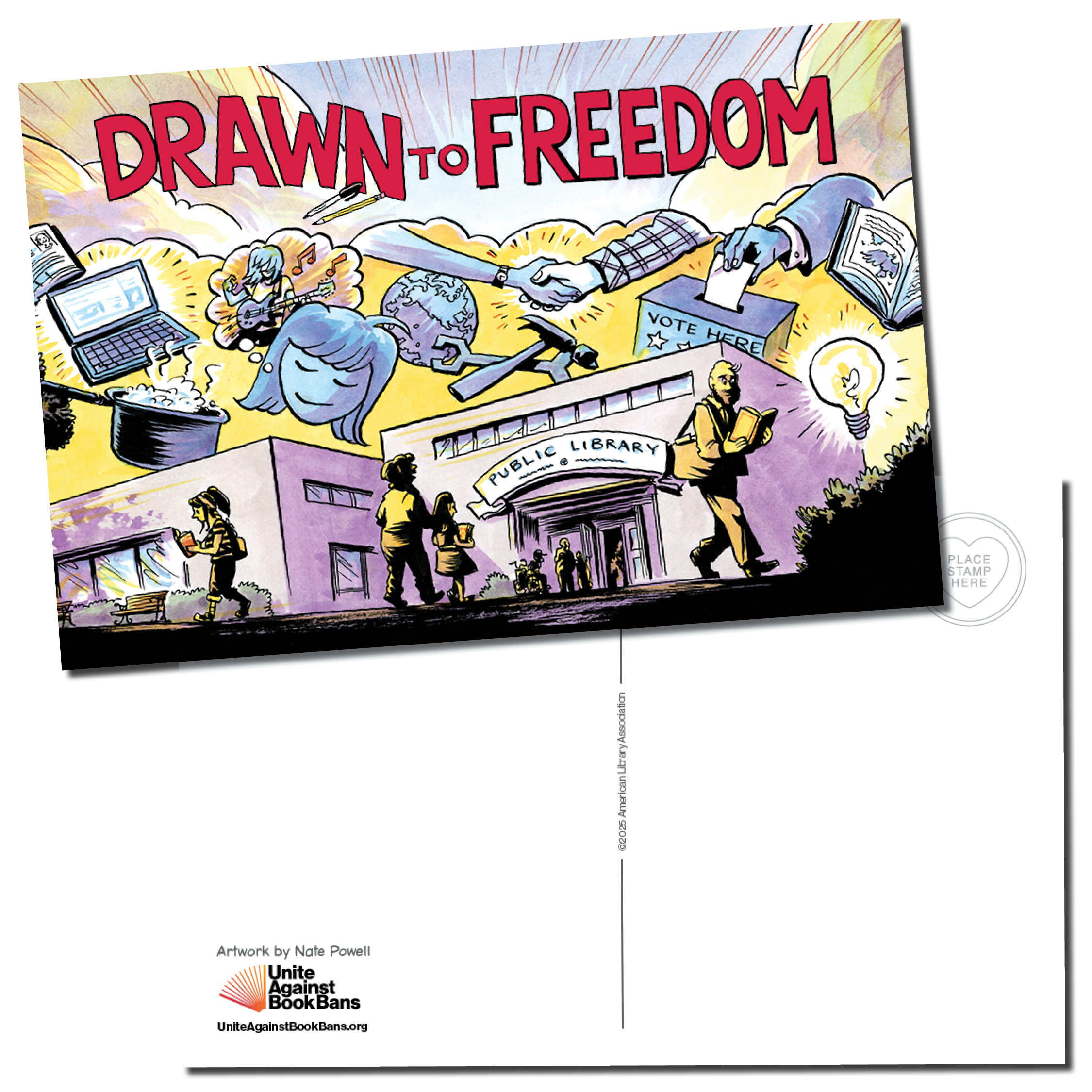
Postcards

Coloring pages
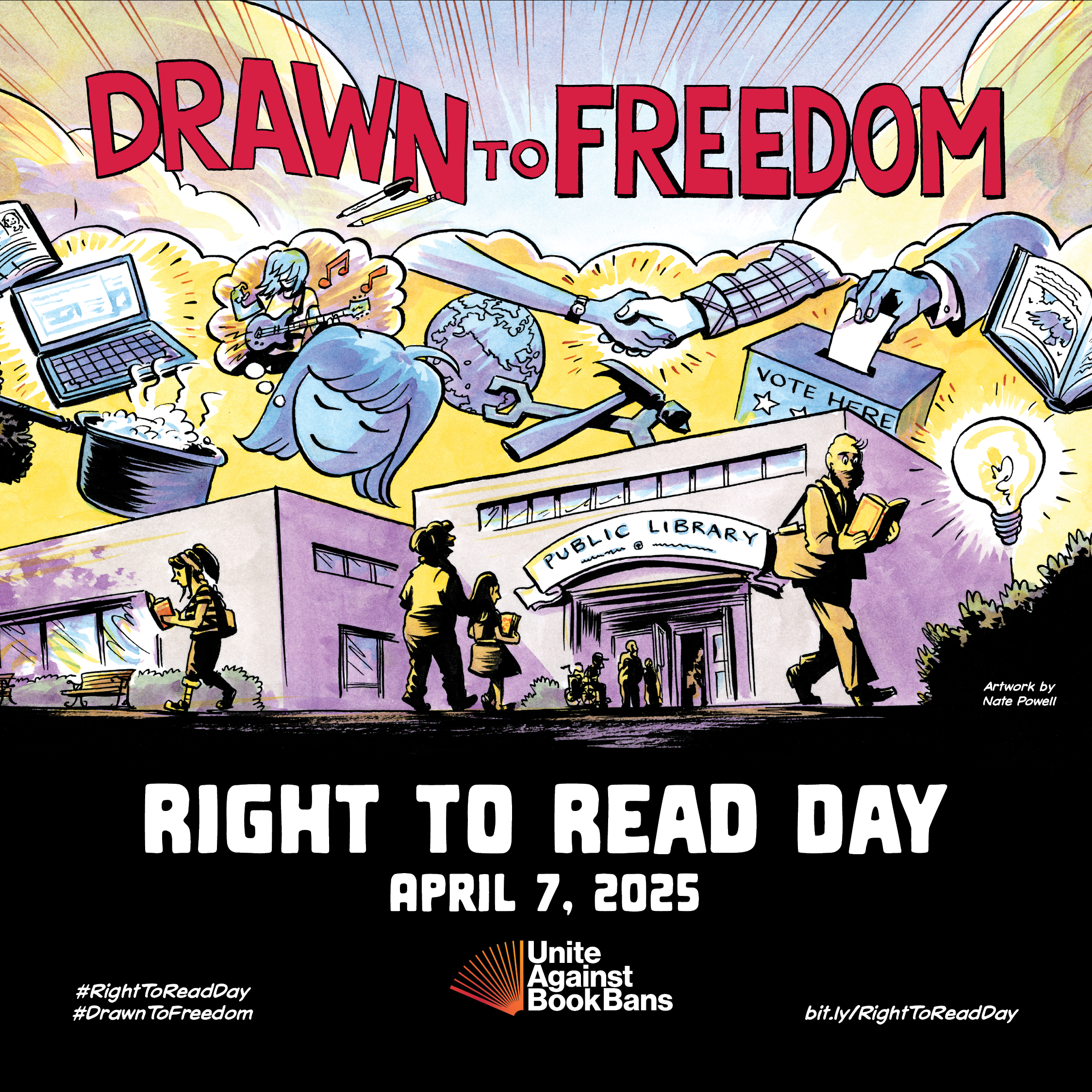
Social media kit
- 1080 x 1080 square assets (ZIP)
- 1080 x 1350 assets (ZIP)
- 1080 x 1920 Instagram stories (ZIP)
- 1500 x 500 banner (PNG)
Copyright notice: Drawn to Freedom artwork is © American Library Association. These assets are provided for free programs, social media, and digital promotion. Other use is prohibited. These assets cannot be monetized or used for fundraising purposes. For questions about use or to report an issue with the files, please contact UniteAgainstBookBans@ala.org
JOIN THE CAMPAIGN AND STAY CONNECTED
Stay alert with updates, tools, and future actions from the Unite Against Book Bans campaign to help you stay aware of and fight censorship efforts in your community.
Already signed up? Share with a friend or family member and help them sign up.
Every person who joins the campaign is one more voice to speak out when their community is threatened by censorship.
The information gathered will be used to share updates and calls to action; it will not be sold. By providing your contact information, you agree to receive news and updates from Unite Against Book Bans. View ALA's privacy policy for more information.
And remember, you can take action against censorship any day of the year. Until we overcome the organized attacks on the freedom to read, Right to Read Day is every day.

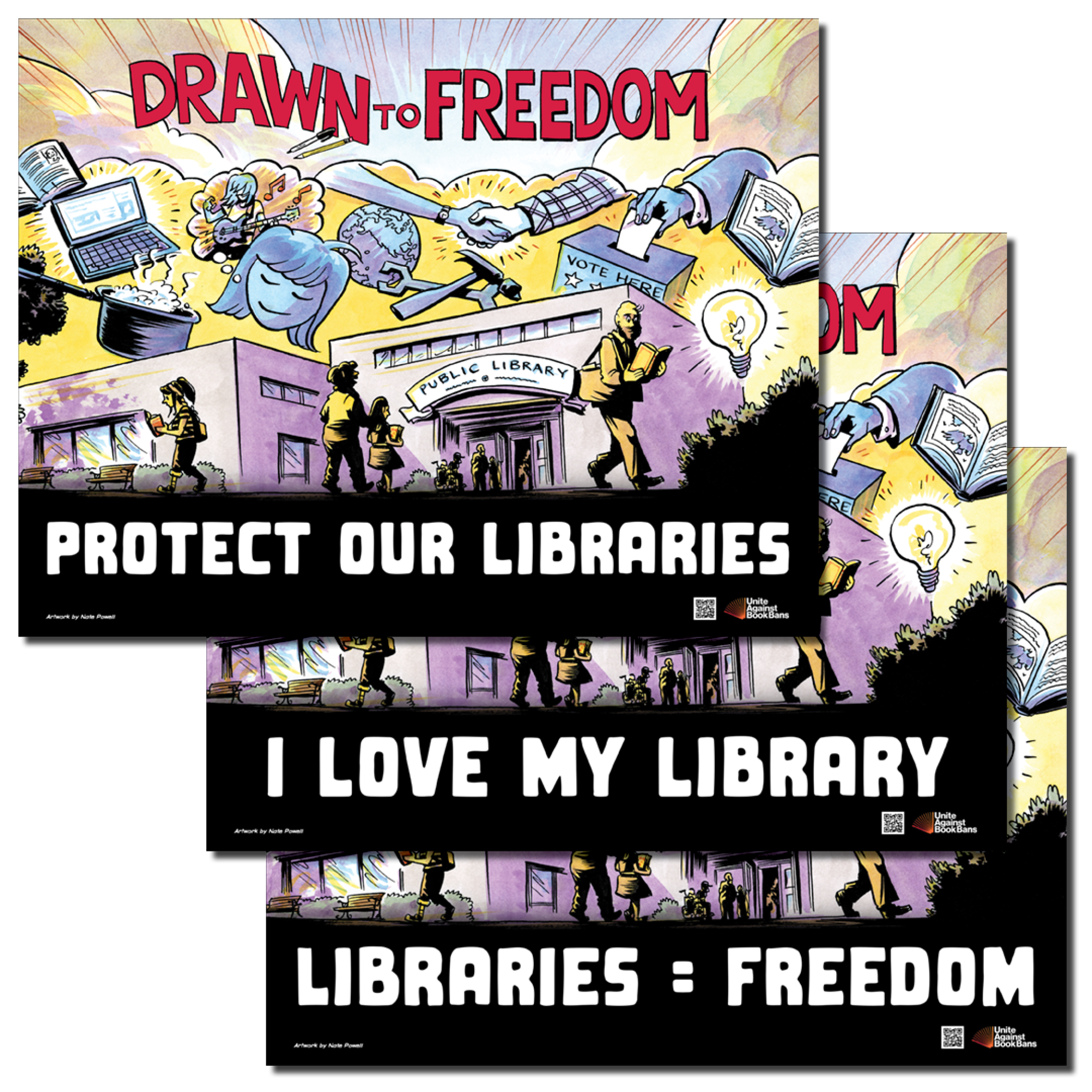


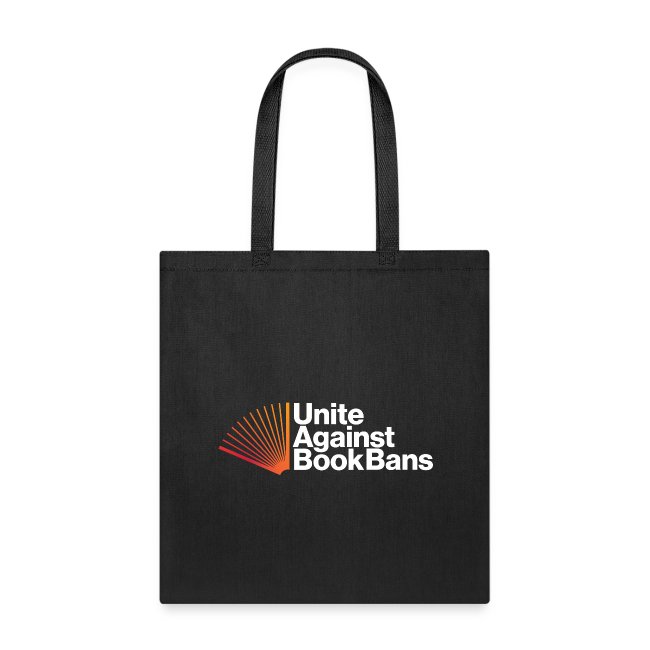

SPREAD THE WORD!
Let’s advocate for libraries with one of our most powerful tools: art! Help get the word out about #RightToReadDay and #DrawnToFreedom by creating drawings, videos, and forms of art that celebrate the freedoms found in libraries. Challenge your followers and friends to join you, too!
Don't have art to share? No problem! You can join us by sharing the social media assets in the downloads section below, resharing other people's art, or by sharing pictures of how you're participating in Right to Read Day and defending libraries in your community!
Be sure to follow and tag us on Bluesky, Instagram, and Facebook. Use the hashtags #RightToReadDay and #DrawnToFreedom in your posts.